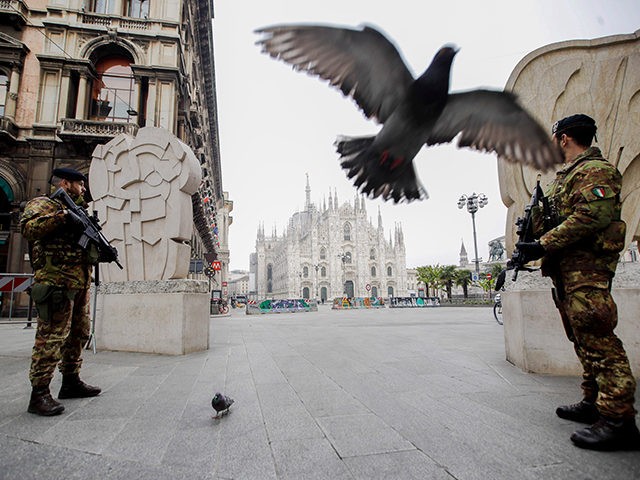The city of Milan in Northern Italy is exploiting the coronavirus lockdown to reinvent itself as a paragon of green virtue, turning its roads into cycle lanes, expanding pedestrian walkways and encouraging commuters to use public transport instead of cars.
According to the Guardian:
The city has announced that 35km (22 miles) of streets will be transformed over the summer, with a rapid, experimental citywide expansion of cycling and walking space to protect residents as Covid-19 restrictions are lifted.
The Strade Aperte plan, announced on Tuesday, includes low-cost temporary cycle lanes, new and widened pavements, 30kph (20mph) speed limits, and pedestrian and cyclist priority streets. The locations include a low traffic neighbourhood on the site of the former Lazzaretto, a refuge for victims of plague epidemics in the 15th and 16th centuries.
Marco Granelli, a deputy mayor of Milan, said: “We worked for years to reduce car use. If everybody drives a car, there is no space for people, there is no space to move, there is no space for commercial activities outside the shops.
“Of course, we want to reopen the economy, but we think we should do it on a different basis from before.”
Milan’s move is emblematic of the ‘never let a crisis go to waste’ strategy being adopted by green activists and sympathisers across the world as they attempt to use the global lockdown as a blueprint for their green New World Order.
Lombardy in northern Italy was one of the areas of Europe most badly hit by the Chinese coronavirus. One theory for its cluster of coronavirus fatalities is that it has one of Europe’s highest populations of Chinese workers, a result of Italian rag trade businesses having been sold to China and then used to export clothes to China with the coveted ‘Made in Italy’ label. Another theory — which supports the new green scheme — is that Lombardy’s huge pollution levels made the populace especially vulnerable to lung infections.
Whether the Milanese population will share their deputy mayor’s enthusiasm for pedestrianising their city remains to be seen. Perhaps it will be a good thing, but either way, they won’t have much choice: by the time they emerge, blinking, from two months or more of rigorously enforced lockdown, their city’s green transformation will already be well on the way to completion.
Delingpole: Earth Day 2020 – Greens Celebrate Coronavirus Lockdown as Blueprint for New World Order https://t.co/oURnG8d7Z5
— Breitbart London (@BreitbartLondon) April 22, 2020

COMMENTS
Please let us know if you're having issues with commenting.